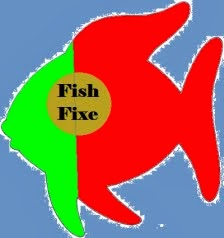Before I begin, a little about me; I'm a Welshman teaching English in Portugal. I've been here since September 2012, I speak limited Portuguese and I live on a diet of meat, potatoes, rice, pasta and chocolate. I avoid vegetables and shun things I prejudge to look disgusting.
In July 2014 I will be leaving Portugal behind and returning to the UK. Until that time, I will be living the life of a pescetarian, travelling as much as Portugal as I can and trying tragically to have as many terrible conversations in bad Portuguese as I can.
Why not eat meat?
Well, in 2013 I decided to start running, properly. During this time I changed my diet slightly and for over one week (a long time in the life of someone like me) I accidentally realised that I had cut meat out of my diet completely. This was an unintentional result of my making vegetable soup, tuna pasta dishes, and (food of the Gods), salmon. A week or two after as I tucked in to a bit of delicious chicken, I thought, do I really need this? Could I survive on just fish?
Thus began the challenge. Why not just eat fish? It's thought to be healthier, happier and more animal friendly. After all, fish aren't as cute as pigs and cows and sheep and all that, so aren't I a better person if I just eat fish? No, maybe not and as selfish as it may sound, I don't really care about that. Animals were put on this earth to be delicious. As were fish.
Truth be told, I don't really eat as much fish I'd like. I tend to avoid seafood and the idea of eating crustaceans confuses me. But I live in Portugal and Portugal is home to a million, billion recipes of codfish and other seafood delights. So, while I am here I am going to sample some of those fishy delights and lay off the beef.
The challenge is such; survive 6 months from January until June by not eating meat. On June 2nd, my birthday, I will celebrate by a big meat blowout. But until then I CANNOT and MUST NOT eat any meat.
The reasons are threefold, in order of least importance.
1. A pesceterian diet is thought by some to be a much healthier alternative to eating meat.
2. I have 6 months left in Portugal and I need a little push to try out all their fishy treats.
3. I don't think I can do it, and that represents a hell of a challenge.
This blog will detail my efforts to steer clear of meat and my efforts to cook up scrumptious seafood dishes. I aim to cook something substantial at least once a week and will stick my efforts on here as well as interesting recipes.
Furthermore, I will continue with increased urgency to try and learn Portuguese and will detail the hilarity of those attempts on here. This may conclude in the summer with an accredited Portuguese course to prove that I have B1 level Portuguese ability.
Lastly, I will be aiming to spend my final six months in Portugal visiting all the places I've yet to go; the Algarve, the Alentejo, the North, etc etc. A later blog post will detail the places I aim to travel and how I aim to go about them.
So, bear with me on my first blog, my first blog post, and the ramblings of a man who tries to get by on fish, poor Portuguese and a limited travelling budget.


















